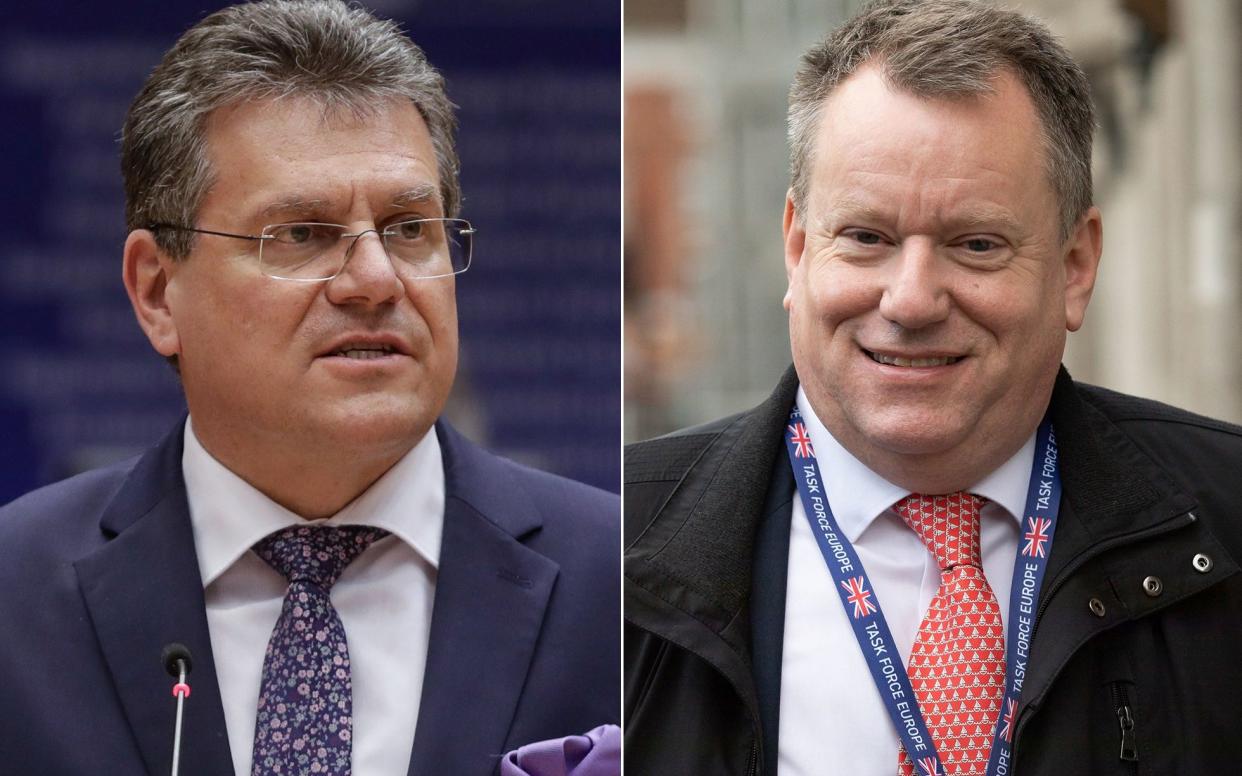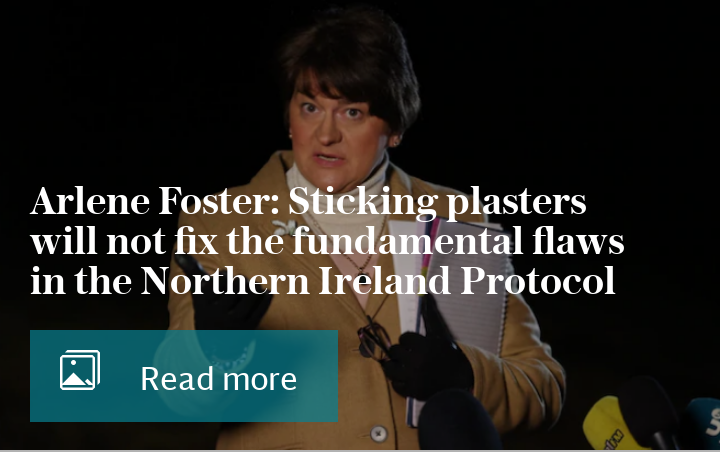Lord Frost back in Brussels to discuss Northern Ireland Protocol

This was first published in The Telegraph's Beyond Brexit Bulletin. For an essential guide to the decisions facing Britain, post Brexit, sign up to our subscriber-exclusive newsletter here – straight to your inbox every Tuesday and Thursday.
Lord Frost is back in Brussels for the first time since he struck the Brexit trade deal at the end of last year.
The former chief negotiator and now Cabinet Minister is in town for talks with his opposite number, European Commission Vice President Maros Sefcovic.
The main course for the dinner discussions at the commission headquarters is the Northern Ireland Protocol.
Brussels has begun legal action against the UK for its unilateral extension of grace periods on customs checks for parcels and food entering Northern Ireland from Britain.
The commission says this is a violation of an international treaty, while the UK says it is not only lawful but a move made in good faith.
Differences between the EU and UK over the implementation of the Protocol are too deep to be solved over a three-course dinner in the Berlaymont building.
Instead the two men will take stock of technical work between officials over the past couple of weeks. There are also hopes that the meeting will provide a political steer for future talks.
Both sides have stressed that significant differences remain between the two camps but there are some positive signs.
The commission agreed to a British request for a month-long extension of a deadline to respond to the letter from Brussels triggering the EU lawsuit.
EU officials accepted British arguments that more time was needed to properly answer all the charges laid at the UK door.
Sources in Brussels have suggested that there has been agreement on some of the issues to do with the Protocol.
Officials have identified 27 different issues on the new customs arrangements, which draw a border in the Irish Sea to prevent one on the island of Ireland. They may not have solved the issues but they are at least doing the same homework.
Both the UK and EU have promised Northern Ireland the “best of both worlds”. Whether that goes so far as to ensure that Northern Irish supermarkets can still stock British bangers is up for debate.

A more pragmatic, rather than rigidly theological interpretation, of the EU rules in Northern Ireland is needed, despite the British provocation of the unilateral action.
The small risk posed to the integrity of the EU’s huge single market by the relatively tiny figures of GB-NI trade should be taken into consideration.
Unfortunately, there has been little sign of such pragmatism from Brussels recently.
The commission this week advised EU member states to oppose the UK joining the Lugano Convention, which would speed up cross-border commercial disputes.
This is clearly in the interest of EU companies as well as UK ones but officials said their decision reflected a Brexit that opted for a distant relationship with the EU.
Brexit is perhaps still too recent and the wounds of the vaccine wars are still too raw for a common sense solution to the Northern Ireland dispute in the near future.

 Yahoo News
Yahoo News 